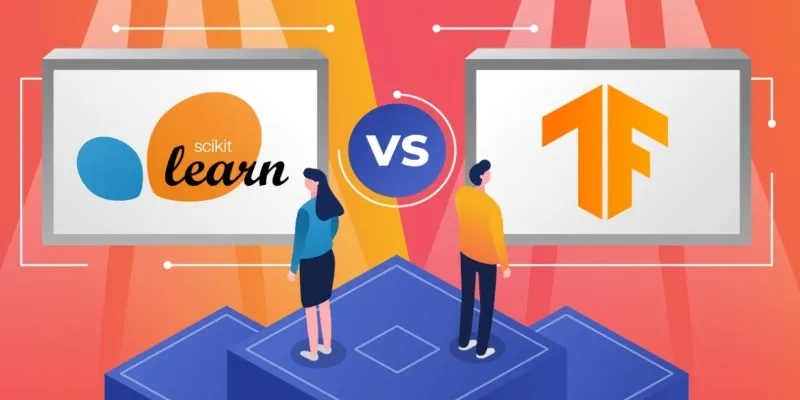Beyond being a platform for connecting with friends and family, Facebook stands as the world’s largest social media platform, utilizing cutting-edge technology and deep learning to maintain user engagement. With 2.9 billion monthly active users, Facebook leverages deep learning to keep users connected globally.
What Is Deep Learning?

Deep learning, a subset of machine learning, uses artificial neural networks to derive insights from large datasets. These models mimic human brain functionality through layers of interconnected processing nodes, enabling advanced decision-making from vast amounts of data.
How Does Deep Learning Shape Facebook’s Engagement Strategies?
Facebook employs deep learning in various key areas to enhance engagement and offer personalized user experiences:
1. Personalized News Feeds
The news feed is central to Facebook’s user experience, with deep learning driving its personalization. Every time you use the app, Facebook’s algorithms analyze:
- Your likes, comments, and shares
- Posts you linger on
- Interactions with groups, pages, and people
This data feeds into models that rank content specifically for you, ensuring the most engaging posts appear at the top based on your likelihood to interact with them.
Real-World Example
Facebook’s Deep Learning Recommendation Model (DLRM) uses reinforcement learning to serve content in real time, continuously refining recommendations for a fresh and engaging feed.
2. Targeted Advertising
Facebook’s advertising platform, a major revenue source, is enhanced by deep learning. By analyzing browsing behavior, interactions, and demographics, it predicts the ads most likely to resonate with you.
Advertisers can target users based on nuanced factors beyond age or gender, such as specific interests or potential purchasing decisions.
Fun Fact
Facebook’s AI tool, “FBLearner Flow,” processes trillions of data points daily, delivering targeted ads that feel almost personalized.
3. Facial Recognition in Photos
Facebook’s automatic tagging of friends in photos is powered by deep learning. Its facial recognition technology analyzes images, compares them to existing photos, and identifies people with impressive accuracy.
The DeepFace model achieves a 97% accuracy rate, rivaling human-level performance in facial recognition.
Privacy Considerations
While enhancing engagement by speeding up tagging, facial recognition raises privacy concerns. Facebook addresses these by providing users with more control over tagging and recognition features.
4. Content Moderation
To ensure a safe user experience, Facebook heavily relies on deep learning for content moderation. Its AI scans billions of posts, photos, and videos daily, detecting and removing harmful content like hate speech, nudity, and spam.
Example
Deep learning models process natural language to identify policy-violating content in real-time, while computer vision techniques spot inappropriate elements in images and videos, even during live streams.
5. Enhanced Video Recommendations
Facebook Watch’s video recommendations are powered by deep learning, analyzing viewing habits such as watch duration, pauses, and replays to suggest similar content, keeping users engaged.
6. Language Translation and Global Accessibility
Facebook bridges language barriers with models like “M2M-100,” translating posts and messages into over 100 languages. Unlike traditional systems, these models translate directly between languages, enhancing accuracy and speed.
This technology ensures Facebook remains accessible, promoting inclusivity and global engagement.
7. Augmented Reality (AR) & Filters
Facebook enhances user creativity with deep learning-powered AR experiences and filters. Its Spark AR platform allows users to create interactive effects, boosting engagement through fun, shareable content.
The Impact of Deep Learning on User Engagement
Facebook’s strategic use of deep learning leads to:
- Personalized Experiences: Each user sees a Facebook version tailored to their interests.
- Longer Engagement Times: Relevant content and features increase user time on the platform.
- Higher Ad Efficacy: Targeted ads yield higher returns for advertisers and more relevant ads for users.
- Community Building: Features like facial recognition and translation facilitate connections.
Challenges and Ethical Considerations of Deep Learning at Facebook
While deep learning enhances engagement, it poses challenges:
1. Data Privacy
Facebook’s models rely on vast user data, raising concerns about collection, storage, and usage. Transparency and robust privacy policies are essential for user trust.
2. Algorithmic Bias
Models can reflect biases present in their training data. Facebook must ensure fairness and prevent perpetuating inequalities.
3. Addictive Design
Maximizing engagement can lead to criticisms of promoting addictive behaviors. Facebook must balance engagement with promoting healthier digital habits.
4. Misinformation
Personalized feeds can inadvertently amplify misinformation. Facebook continues to enhance its systems to identify and demote such content proactively.
How Deep Learning Shapes Facebook’s Future

Deep learning continues to transform Facebook, creating a safer, more positive user environment. By leveraging this technology, Facebook can better understand user behavior, improving content moderation, personalization, and engagement.
Deep learning significantly impacts content moderation, with algorithms detecting and removing harmful content proactively, ensuring it doesn’t reach large audiences.
Conclusion
Deep learning advancements have revolutionized Facebook’s approach to providing a safer, personalized user experience. From content moderation improvements to tailored recommendations, these technologies are vital. As systems evolve, addressing concerns like algorithmic transparency, user privacy, and ethical usage is crucial for building a more trustworthy, inclusive digital space.
 zfn9
zfn9





















